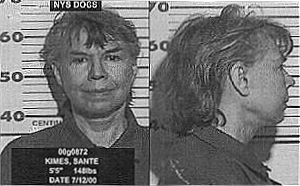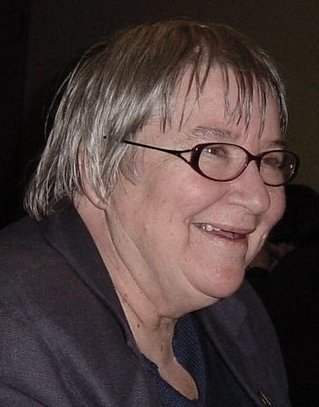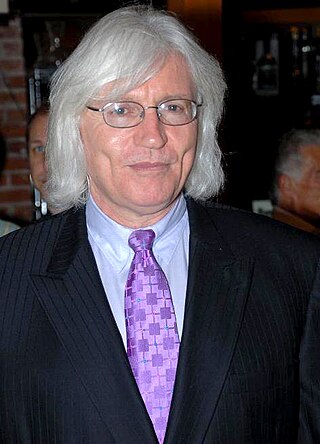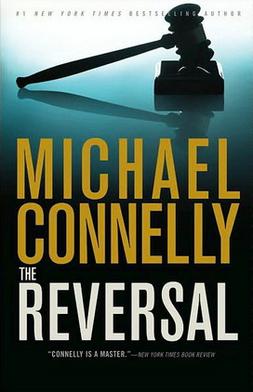
Sante Kimes also known as the Dragon Lady, was an American murderer, con artist, robber, serial arsonist, and possible serial killer who was convicted of two murders, as well as robbery, forgery, violation of anti-slavery laws and numerous other crimes. Many of these crimes were committed with the assistance of her son, Kenneth Kimes. They were tried and convicted together for the murder of Irene Silverman, along with 117 other charges.

Diane Alexis Whipple was an American lacrosse player and college coach. She was killed in a dog attack in San Francisco on January 26, 2001. The dogs involved were two Presa Canarios. Paul Schneider, the dogs' owner, is a high-ranking member of the Aryan Brotherhood and is serving three life sentences in state prison. The dogs were looked after by Schneider's attorneys, Robert Noel and Marjorie Knoller, a husband and wife who lived in the same apartment building as Whipple. After the fatal attack, the state brought criminal charges against the attorneys. Noel, who was not present during the attack, was convicted of manslaughter. Knoller, who was present, was charged with implied-malice second-degree murder and convicted by the jury. Knoller's murder conviction, an unusual result for an unintended dog attack, was rejected by the trial judge but ultimately upheld. The case clarified the meaning of implied malice murder.

The Scottsboro Boys were nine African-American male teenagers accused of raping two white women in 1931. The landmark set of legal cases from this incident dealt with racism and the right to a fair trial. The cases included a lynch mob before the suspects had been indicted, all-white juries, rushed trials, and disruptive mobs. It is commonly cited as an example of a legal injustice in the United States legal system.
Michael Stone was convicted of the 1996 murders of Lin and Megan Russell and the attempted murder of Josie Russell. He was sentenced to three life sentences with a tariff of 25 years for the Russell killings.

Lynne Irene Stewart was an American defense attorney who was known for representing controversial, famous defendants. She herself was convicted on charges of conspiracy and providing material support to terrorists in 2005, and sentenced to 28 months in prison. Her felony conviction led to her being automatically disbarred. She was convicted of helping pass messages from her client Sheikh Omar Abdel-Rahman, an Egyptian cleric convicted of planning terror attacks, to his followers in al-Gama'a al-Islamiyya, an organization designated as a Foreign Terrorist Organization by the United States Secretary of State.

Thomas Arthur Mesereau Jr. is an American attorney known for defending Michael Jackson in his 2005 child molestation trial, as well as Mike Tyson, Bill Cosby and, in 2023, Danny Masterson, a case in which Mesereau was sanctioned by the judge.
Randall Dale Adams was an American man wrongfully convicted of murder and sentenced to death after the 1976 shooting of Dallas police officer Robert W. Wood. His conviction was overturned in 1989.
Steven Allan Avery is an American convicted murderer from Manitowoc County, Wisconsin, who had previously been wrongfully convicted in 1985 of sexual assault and attempted murder. After serving 18 years of a 32-year sentence, Avery was exonerated by DNA testing and released in 2003, only to be charged with murder two years later.
This is a list of notable overturned convictions in the United States.

Amanda Marie Knox is an American author, activist, and journalist. She spent almost four years incarcerated in Italy after her wrongful conviction in the 2007 murder of Meredith Kercher, a fellow exchange student, with whom she shared an apartment in Perugia. In 2015, Knox was definitively acquitted by the Italian Supreme Court of Cassation. In 2024, an Italian appellate court upheld Amanda Knox's slander conviction for falsely accusing Patrick Lumumba of murdering Meredith Kercher.
The Nancy Kissel murder case was a highly publicised criminal trial held in the High Court of Hong Kong, where American expatriate Nancy Ann Kissel was convicted of the murder of her husband, 40-year-old investment banker Robert Peter Kissel, in their apartment on 2 November 2003. It was arguably the highest profile criminal case involving an expatriate in Hong Kong's history, and was closely covered in the media.
Peter Connelly was a 17-month-old British boy who was killed in London in 2007 after suffering more than fifty injuries over an eight-month period, during which he was repeatedly seen by the London Borough of Haringey Children's services and National Health Service (NHS) health professionals. Baby P's real first name was revealed as "Peter" on the conclusion of a subsequent trial of Peter's mother's boyfriend on a charge of raping a two-year-old. His full identity was revealed when his killers were named after the expiry of a court anonymity order on 10 August 2009.

Teresa Elena De Simone was murdered in Southampton, England, in 1979. Her murder led to one of the longest proven cases of a miscarriage of justice in English legal history. The murder occurred outside the Tom Tackle pub and was the subject of a three-year police investigation which resulted in the arrest of Sean Hodgson. Hodgson was convicted of the murder by a unanimous jury verdict in 1982 and was sentenced to life imprisonment. After serving 27 years in prison he was exonerated and released in March 2009. DNA analysis of semen samples that had been preserved from the original crime scene showed that they could not have come from him.

The Reversal is the 22nd novel by American author Michael Connelly and features the third major appearance of Los Angeles criminal defense attorney Michael "Mickey" Haller. Connelly introduced Haller in his bestselling 2005 novel The Lincoln Lawyer and then paired him with LAPD detective Harry Bosch, his half-brother, in 2008's The Brass Verdict. In 2009's 9 Dragons, Haller was a secondary character as Bosch's personal lawyer. The Reversal was published in the United States on October 5, 2010.

Teresa Wilson Bean Lewis was an American murderer who was the only woman on death row in Virginia prior to her execution. She was sentenced to death by lethal injection for the murders of her husband and stepson in October 2002. Lewis sought to profit from a $250,000 life insurance policy her stepson had taken out as a U.S. Army reservist in anticipation of his deployment to Iraq.
Gregory James King was a New Zealand criminal defence lawyer and broadcaster. He has been described as "one of this country's finest legal brains".

Corey Miller, better known by his stage name C-Murder, is an American rapper. He initially gained fame in the mid-1990s as a part of his brother Master P's label No Limit Records, primarily as a member of the label's supergroup, TRU. Miller went on to release several solo albums of his own through the label, including 1998's platinum Life or Death. C-Murder has released nine albums altogether on six different labels, No Limit Records, TRU Records, Koch Records, Asylum Records, RBC Records, and Venti Uno.

Making a Murderer is an American true crime documentary television series written and directed by Laura Ricciardi and Moira Demos. The show tells the story of Steven Avery, a man from Manitowoc County, Wisconsin, who served 18 years in prison (1985–2003) after his wrongful conviction for the sexual assault and attempted murder of Penny Beerntsen. He was later charged with and convicted of the 2005 murder of Teresa Halbach. The connected story is that of Avery's nephew Brendan Dassey, who was accused and convicted as an accessory in the murder of Halbach.
Brendan Ray Dassey is an American convicted murderer from Manitowoc County, Wisconsin, who at 16 confessed to being a party to first-degree murder, mutilation of a corpse, and second-degree sexual assault. He was sentenced to life in prison with the earliest possibility of parole in 2048. His videotaped interrogation and confession, which he recanted at trial, substantially contributed to his conviction. Parts were shown, but much was left out, in the Netflix documentary series Making a Murderer (2015). The series examined the 2005–2007 investigation, prosecution, and trials of Dassey and his uncle, Steven Avery, both of whom were convicted of murdering the photographer Teresa Halbach on October 31, 2005.










